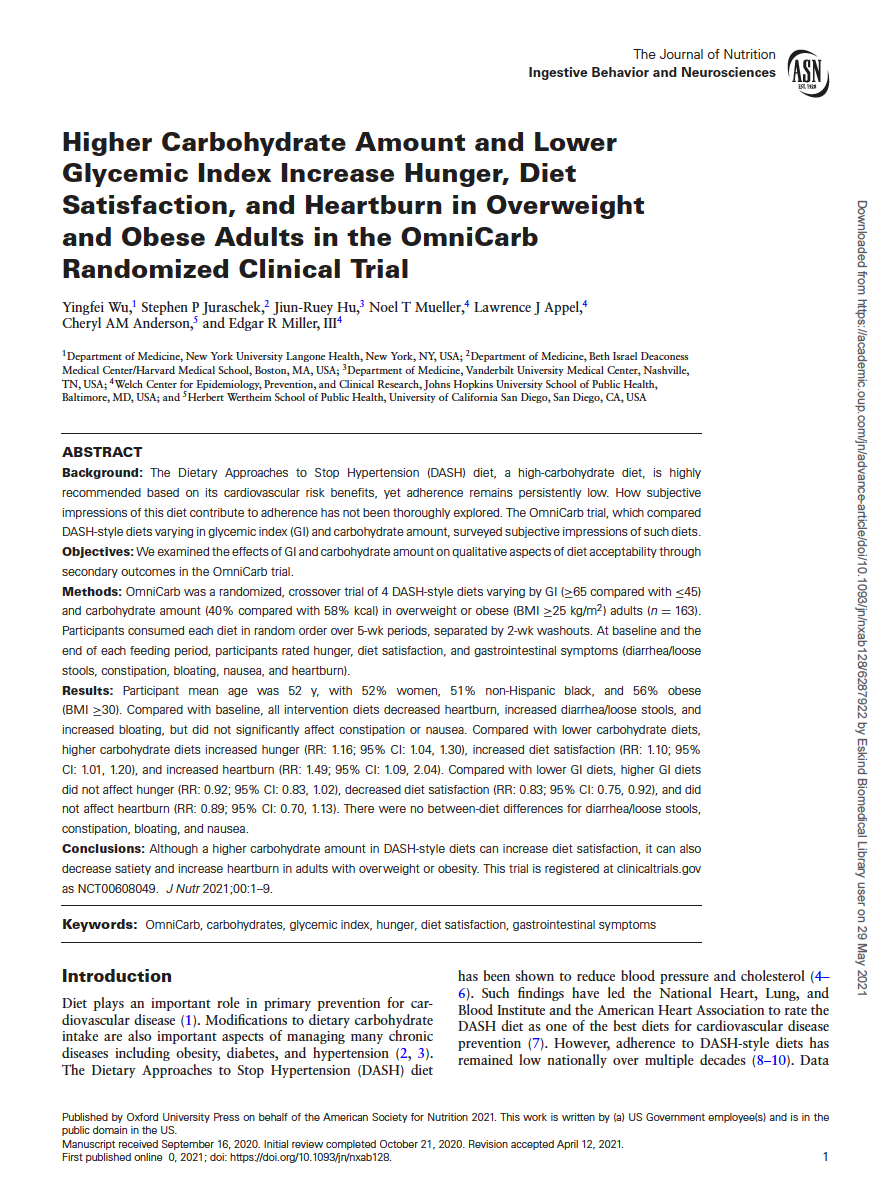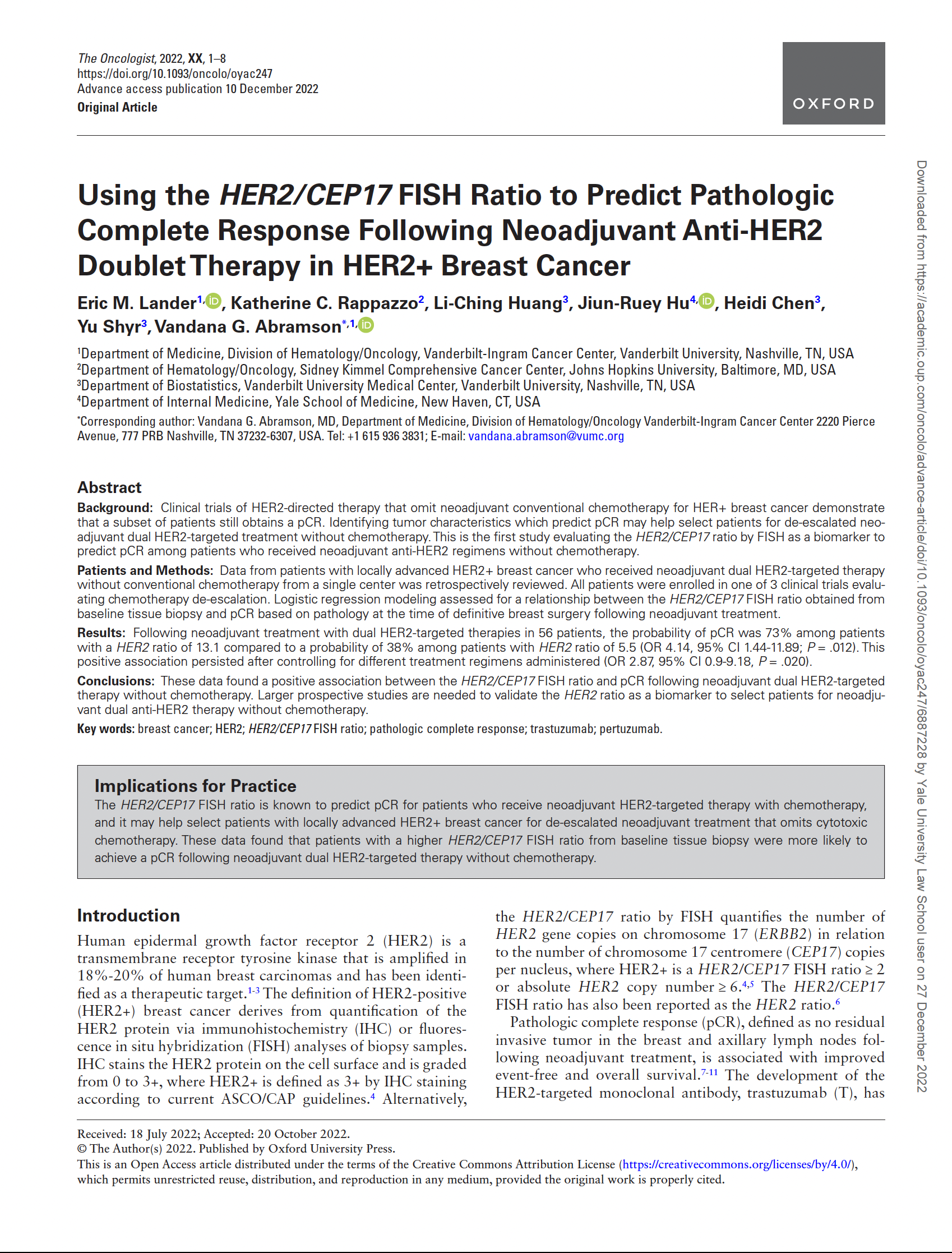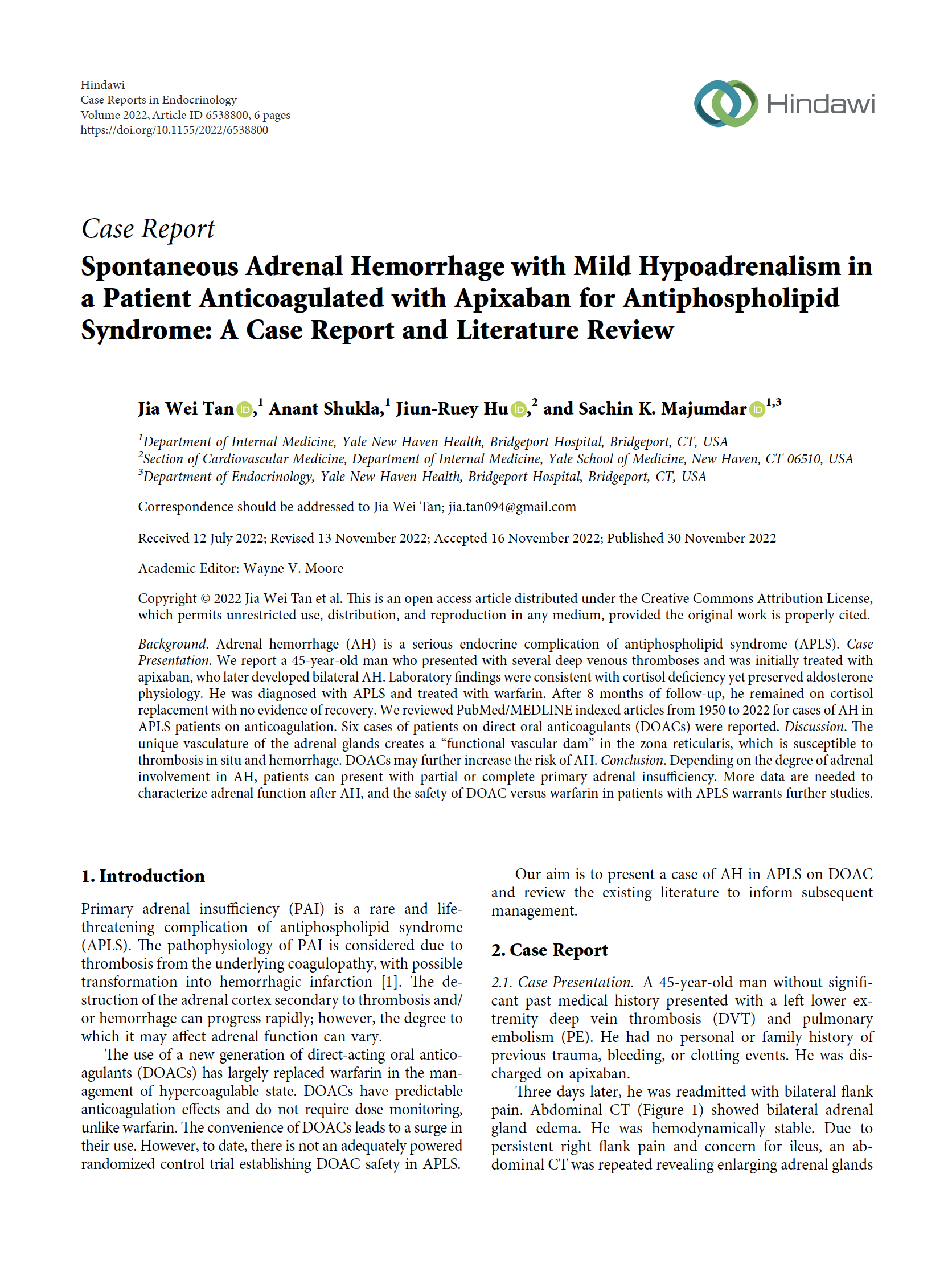📝 Abstract
Background: The Dietary Approaches to Stop Hypertension (DASH) diet, a high-carbohydrate diet, is highly recommended based on its cardiovascular risk benefits, yet adherence remains persistently low. How subjective impressions of this diet contribute to adherence has not been thoroughly explored. The OmniCarb trial, which compared DASH-style diets varying in glycemic index (GI) and carbohydrate amount, surveyed subjective impressions of such diets.
Objectives: We examined the effects of GI and carbohydrate amount on qualitative aspects of diet acceptability through secondary outcomes in the OmniCarb trial.
Methods: OmniCarb was a randomized, crossover trial of 4 DASH-style diets varying by GI (≥65 compared with ≤45) and carbohydrate amount (40% compared with 58% kcal) in overweight or obese (BMI ≥25 kg/m2) adults (n = 163). Participants consumed each diet in random order over 5-wk periods, separated by 2-wk washouts. At baseline and the end of each feeding period, participants rated hunger, diet satisfaction, and gastrointestinal symptoms (diarrhea/loose stools, constipation, bloating, nausea, and heartburn).
Results: Participant mean age was 52 y, with 52% women, 51% non-Hispanic black, and 56% obese (BMI ≥30). Compared with baseline, all intervention diets decreased heartburn, increased diarrhea/loose stools, and increased bloating, but did not significantly affect constipation or nausea. Compared with lower carbohydrate diets, higher carbohydrate diets increased hunger (RR: 1.16; 95% CI: 1.04, 1.30), increased diet satisfaction (RR: 1.10; 95% CI: 1.01, 1.20), and increased heartburn (RR: 1.49; 95% CI: 1.09, 2.04). Compared with lower GI diets, higher GI diets did not affect hunger (RR: 0.92; 95% CI: 0.83, 1.02), decreased diet satisfaction (RR: 0.83; 95% CI: 0.75, 0.92), and did not affect heartburn (RR: 0.89; 95% CI: 0.70, 1.13). There were no between-diet differences for diarrhea/loose stools, constipation, bloating, and nausea.
Conclusions: Although a higher carbohydrate amount in DASH-style diets can increase diet satisfaction, it can also decrease satiety and increase heartburn in adults with overweight or obesity.This trial is registered at clinicaltrials.gov as NCT00608049.


